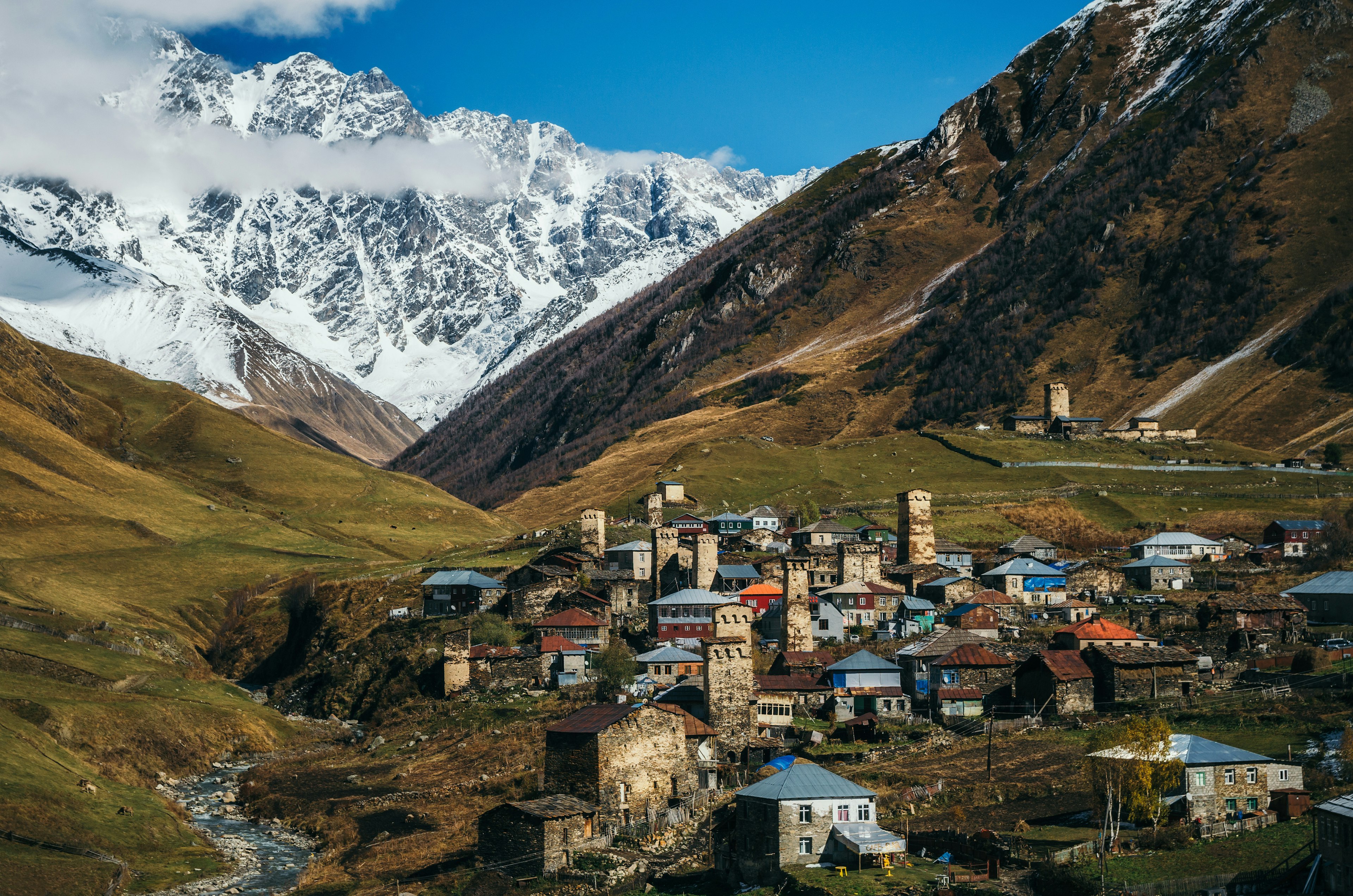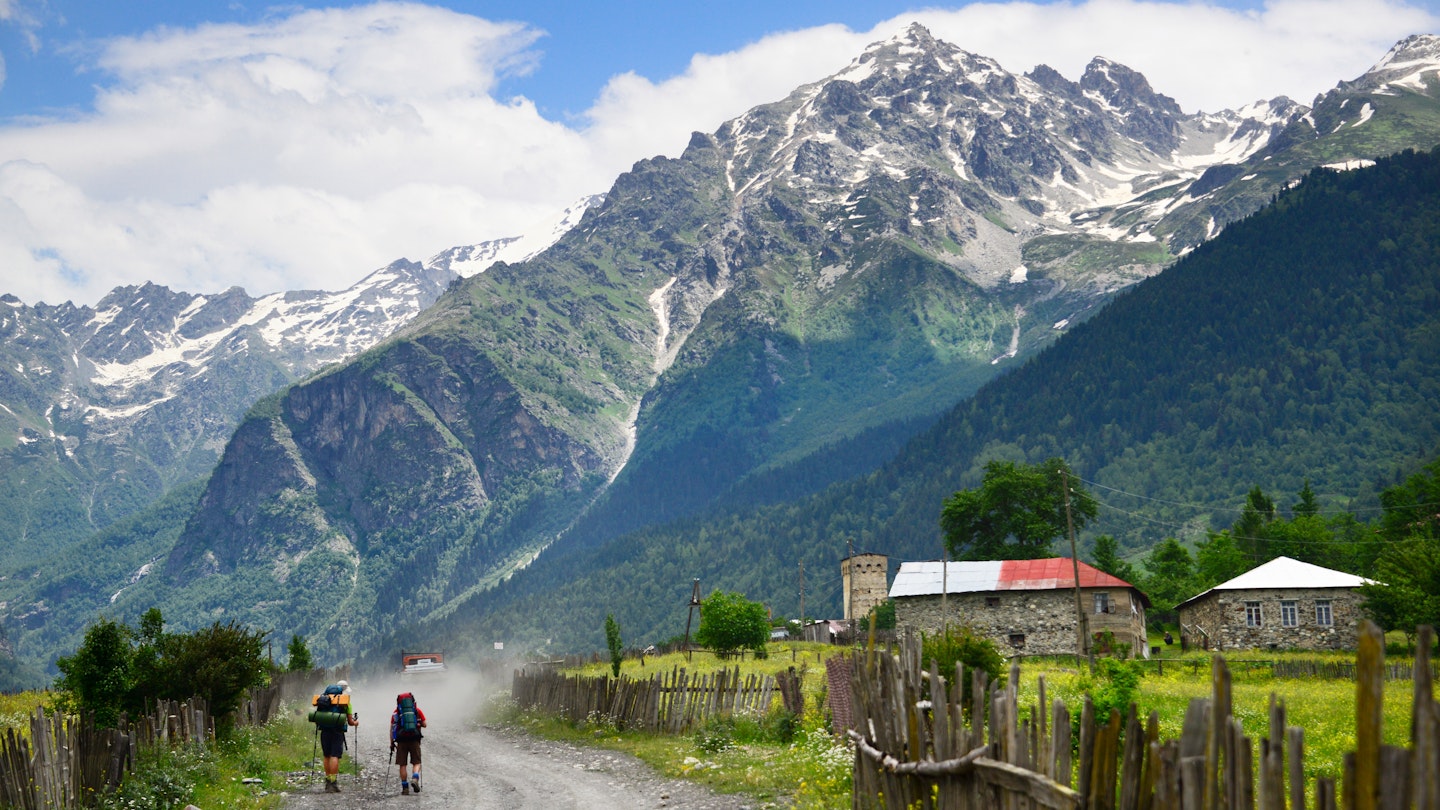A Year-Round Guide to Visiting Georgia
The greatest numbers of visitors to Georgia arrive in July and August, the ideal months for hiking in the spectacular mountains along its northern fringe and for relaxing along its warm Black Sea coast. However, this small South Caucasus nation, about half the size of England and located at a similar latitude to Rome and Barcelona, offers myriad reasons to visit at any time of year.
Summer: June to August
With temperatures passing 30°C in July and August, summer can become a bit too hot for comfort in the capital, Tbilisi, and the rest of the lowlands. Therefore, it’s the perfect time to retreat to the coast or the mountains. Seawater temperatures at Batumi, the main Black Sea resort, reach the upper 20s°C in August. Moreover, Tbilisi’s vibrant nightlife migrates to Batumi during this period, creating a lively party atmosphere that compensates for the stoniness of the beaches.
Several mountain areas in the Great Caucasus along Georgia’s northern border each offer unique experiences. The journey to any of these breathtaking spots, along dramatic mountain roads, is part of the adventure. The walking season runs from June to October, with numerous trails available, from short valley hikes to extended multi-day treks.
In the west, the picturesque region of Svaneti is accessible via an overland trip of over 10 hours from Tbilisi or, if you’re lucky, a spectacular one-hour small-plane flight. This stunning area features beautifully scenic valleys descending from snow-capped peaks over 4000m high and quaint villages dotted with ancient stone towers. The main town, Mestia, offers ample accommodation options, including guesthouses and homestays. A popular trek leads from Mestia to Ushguli, a UNESCO World Heritage site famous for its picturesque scenery and Svan towers, with Georgia’s highest peak, Shkhara, standing sentinel in the background.
A shorter road trip of about three hours brings you north from Tbilisi to the charming town of Kazbegi (Stepantsminda), which boasts Georgia’s most iconic view: the Tsminda Sameba church perched against the backdrop of the towering snowy cone of Mt Kazbek, a majestic 5047m-high extinct volcano. The trek to Tsminda Sameba can be tackled in about an hour, and reaching the Gergeti Glacier on the lower slopes of Mt Kazbek takes approximately four to five hours. There are numerous additional trails and mountain biking opportunities available locally.
While the roads to Kazbegi and Svaneti remain accessible year-round, another captivating mountain region, Tusheti, in northeastern Georgia, is only open from June to mid-October, when snow no longer blocks access via the nerve-wracking 2900m-high Abano Pass. Tusheti features pristine green slopes, snowy peaks, and scattered villages with ancient animist shrines. The wide range of options for day hikes and longer treks, along with popular horse treks and rustic guesthouses in villages, makes this a must-visit area.

Autumn: September to November
Autumn is a wonderful season in Georgia, as the temperatures begin to cool in the lowlands while still providing warm conditions to enjoy the mountains until October. Featuring abundant trees, the fall foliage is a colorful spectacle. In a country known for its national passion for wine, the grape harvest from late September to late October leads to a season filled with feasting, music, and merrymaking, particularly in the main wine-producing region of Kakheti (east of Tbilisi). Numerous accommodations, including winery hotels, are available to participate in both the harvesting and celebrations.
Furthermore, autumn marks the revival of Georgia’s dynamic cultural and entertainment scene, especially in Tbilisi, following the summer. The city particularly comes alive during the Tbilisoba festival, held over a weekend in October, featuring an array of music, dance, food, and, of course, wine!

Winter: December to March
During winter, temperatures can drop significantly, often reaching freezing in inland areas until February. Georgians celebrate Orthodox Christmas on January 7, followed by a week of festivities. The winter sports scene comes alive, offering several ski resorts to choose from. Notably, Gudauri, located 120km north of Tbilisi in the Great Caucasus, boasts solid infrastructure, excellent powder, diverse runs, and even options for heliskiing. Family-oriented Bakuriani, situated near Borjomi, balances skiing with fun activities for children, while remote Svaneti is an emerging area gaining popularity among adventurous skiers. Skiing in Georgia is markedly inexpensive compared to Western Europe and North America, with fewer crowds and a refreshingly relaxed vibe.
Spring: April and May
Spring brings showers, but they don’t hinder exploration of the lowlands and portions of the highlands as the countryside flourishes, with temperatures reaching the 20s°C by May. As the walking trails in the foothill areas reopen, the highly anticipated rafting season on the Aragvi River north of Tbilisi kicks off in late April. Additionally, Georgian Easter occurs during this time, occurring up to five weeks after Western Easter, featuring special services at Svetitskhoveli Cathedral in Mtskheta, near Tbilisi, and other locations around the country.
Year-Round Opportunities
The vibrant atmosphere of Tbilisi, with its remarkable restaurants, cafes, and bars, remains lively throughout the year, with minimal low periods, save for August. A majority of monuments, museums, and accommodations across the country stay open year-round. Key attractions, such as the wineries of Kakheti, the historic cathedrals and churches in Mtskheta and Kutaisi, as well as the extraordinary cave monasteries of Davit Gareja and Vardzia, along with the ancient city of Uplistsikhe, can be explored anytime, with many sites enhancing their charm when lightly dusted with snow!




